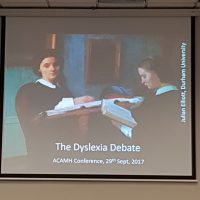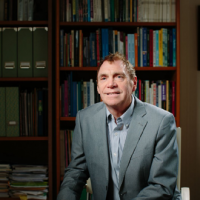Developmental language disorder (DLD) is diagnosed when a child’s language skills are persistently below the level expected for the child’s age.
Developmental language disorders
-

Language impairment needs more recognition in the juvenile justice system
Language and communication impairments in adolescents in custody is much higher than in the general population, estimates range from 60-90% compared to 7-12%. A study from Nathan Hughes and colleagues has investigated co-morbidity of language difficulties in a cohort of 93 young male offenders (15-18 years) held in a secure custodial facility in the UK.
Read more -

Parents should keep talking to boost infant language development
Children from low socioeconomic status (SES) backgrounds tend to have poorer language skills when starting school than those from higher SES backgrounds. Now, data shows that increasing the amount of “contingent talk”— whereby a caregiver talks about objects that an infant is directly focusing on — within an infant’s first year of life promotes a wide vocabulary later in infancy.
Read more -

DLD – Developmental Language Disorder
Developmental language disorder (DLD) is diagnosed when a child’s language skills are persistently below the level expected for the child’s age. In DLD, language deficits occur in the absence of a known biomedical condition, such as autism spectrum disorder or Down syndrome, and interfere with the child’s ability to communicate effectively with other people.
Read more -

Processing speed determines dyslexia risk
Males exhibit a lower average reading performance than females, according to new data from Anne Arnett and colleagues. The researchers devised a framework to first validate the apparent sex difference in prevalence of dyslexia and then determine which cognitive correlates may underlie this difference.
Read more -

ADHD screens: look into language
A literature review of language problems in ADHD has confirmed large deficits in multiple areas of language functioning among young people with the disorder.
Read more -

The Parent Blame Game
Seventy years ago Leo Kanner published his seminal paper describing autism. In that paper he also coined the term “refrigerator mother” apportioning some of the cause for the distinctive profile of autistic behaviour to cold, harsh parenting practices.
Read more -

The Dyslexia Debate
This recording is from Professor Joe Elliot titled ‘The Dyslexia Debate’. It is from the conference, ‘Dyslexia from assessment to intervention’ was held on Friday 29 September 2017, and was organised by the Welsh ACAMH Branch. The day promoted the notion that the assessment of literacy difficulties should be the first step on a clear pathway to individualised interventions for children or young people.
Read more -

Understanding and Dealing with Dyslexia; Assessment and Intervention
This recording is from Dr. Gavin Reid titled ‘Understanding and Dealing with Dyslexia; Assessment and Intervention’. It is from the conference, ‘Dyslexia from assessment to intervention’ was held on Friday 29 September 2017, and was organised by the Welsh ACAMH Branch. The day promoted the notion that the assessment of literacy difficulties should be the first step on a clear pathway to individualised interventions for children or young people.
Read more -

‘Dyslexia and Language Impairment’ Professor Maggie Snowling
Professor Maggie Snowling on ‘Dyslexia and Language Impairment’. Recorded on 29 September 2017, and was organised by the Welsh ACAMH Branch as part of the conference, ‘Dyslexia from assessment to intervention’. ACAMH members can now receive a CPD certificate for watching this recorded lecture.
Read more
